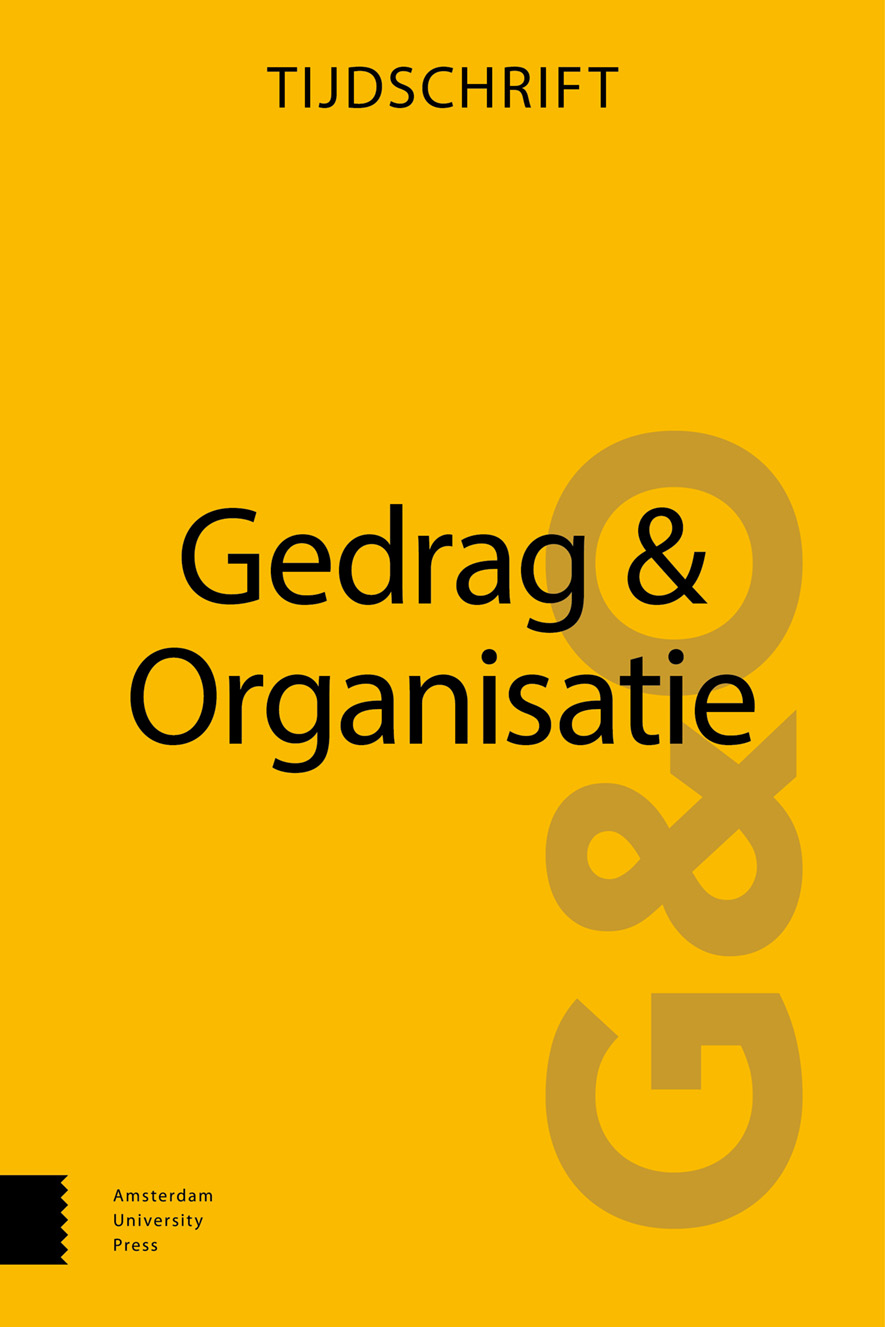-
OAWerkkenmerken, welzijn en organisatieprestatie: een toets van de happy-productive worker-hypothese op organisatieniveau
- Amsterdam University Press
- Source: Gedrag & Organisatie, Volume 21, Issue 1, Mar 2008,
Abstract
Work characteristics, well-being and organizational performance: an organizational-level test of the happy-productive worker hypothesis
T.W. Taris, P.J.G. Schreurs, K.J.L. Eikmans & P. van Riet, Gedrag & Organisatie, volume 21, March 2008, pp. 3-18.
The present study examined the associations among job characteristics (demands and control), worker well-being (satisfaction and exhaustion) and indicators of organizational performance (efficiency, absence rates, and client satisfaction) among 66 Dutch home care organizations. Based on previous research, we expected that demands would relate negatively and control would relate positively to well-being, and that positive well-being would be positively related to performance. Covariance structure modeling revealed that the expected relationships among job characteristics and well-being were largely confirmed. Further, satisfaction was positively related to client satisfaction; exhaustion was negatively related to client satisfaction and positively to absence; and exhaustion was negatively related to organizational efficiency. We conclude that more theorizing and more longitudinal research on the association between worker well-being and organizational performance is imperative to add to our understanding of this relationship.


